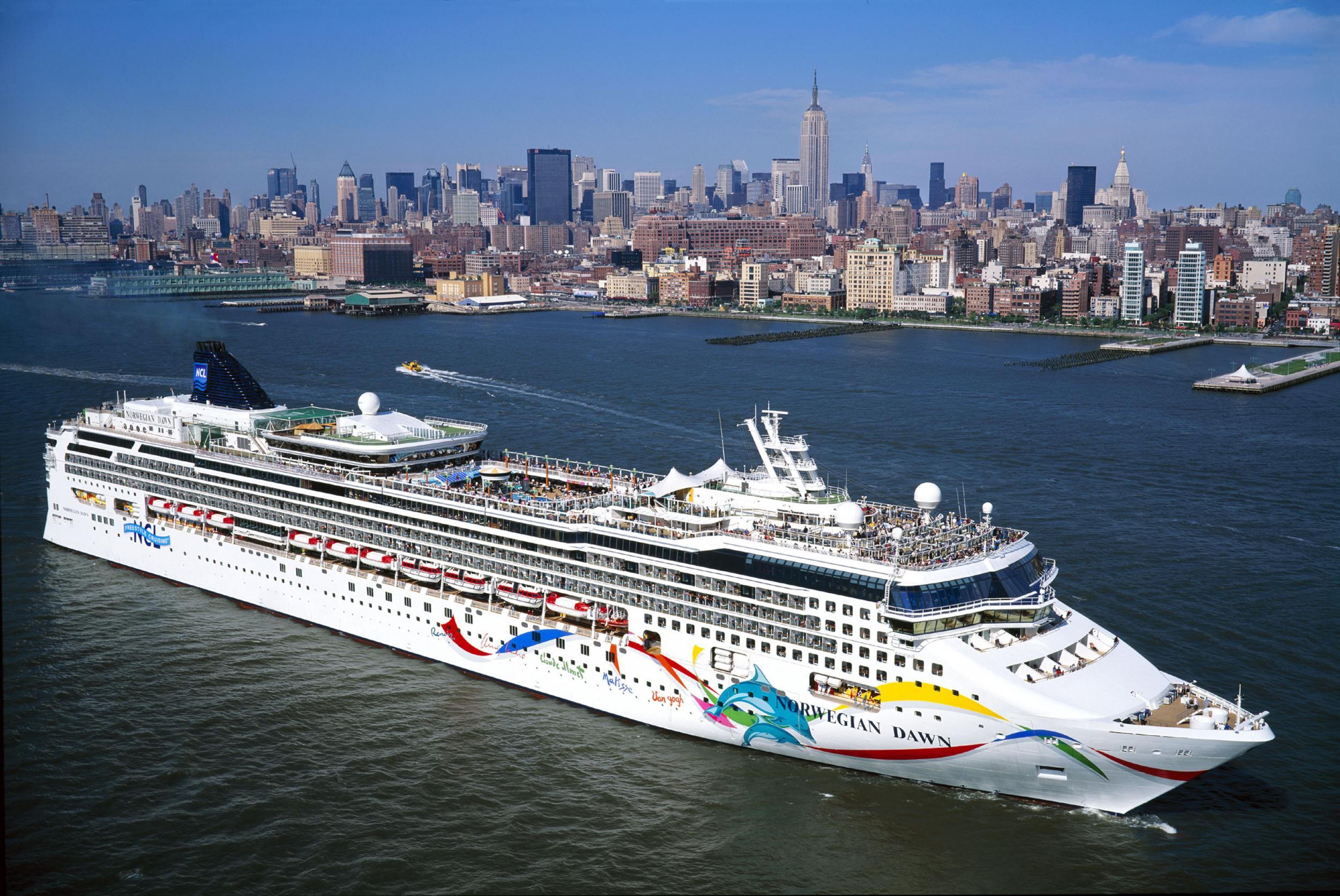This website uses cookies so that we can provide you with the best user experience possible. Cookie information is stored in your browser and performs functions such as recognising you when you return to our website and helping our team to understand which sections of the website you find most interesting and useful.

A cruise line has ditched single-use plastic drinks bottles across its fleet in an effort to be more sustainable.
Miami-based Norwegian Cruise Line (NCL) has replaced all plastic drinks bottles with sustainable alternatives on all 17 of its ships, beginning with its latest liner, Norwegian Encore.
The initiative will save around six million drinks bottles a year, it said.
NCL is aiming to get rid of all single-use plastic toiletries bottles later this year, following in the footsteps of hospitality firms Marriott, Hyatt and InterContinental.
Last year, the cruise line partnered with beverage packaging firm Just Goods, which offers water in a plant-based recyclable and refillable carton.
Created with Sketch.
Created with Sketch.
1/10 Norwegian Cruise Line
Best for families: Norwegian Cruise Line
Norwegian Cruise Line
2/10 Ponant
Best for expeditions: Ponant
Ponant
3/10
Best for wildlife:
Copyright 2016 Michael S. Nolan
4/10 Royal Caribbean
Best for onboard activities: Royal Caribbean
Royal Caribbean
5/10 Silversea
Best for luxury: Silversea
Silversea
6/10 P&O Cruises
Best for couples: P&O Cruises
P and O Cruises
7/10 Silversea
Best for solo travellers: Silversea
Silversea
8/10 Hurtigruten
Best for expeditions: Hurtigruten
Dominic Barrington
9/10 Viking
Best for river cruises: Viking
Viking
10/10 Crystal Cruises
Best for foodies: Crystal Cruises
Crystal Cruises
1/10 Norwegian Cruise Line
Best for families: Norwegian Cruise Line
Norwegian Cruise Line
2/10 Ponant
Best for expeditions: Ponant
Ponant
3/10
Best for wildlife:
Copyright 2016 Michael S. Nolan
4/10 Royal Caribbean
Best for onboard activities: Royal Caribbean
Royal Caribbean
5/10 Silversea
Best for luxury: Silversea
Silversea
6/10 P&O Cruises
Best for couples: P&O Cruises
P and O Cruises
7/10 Silversea
Best for solo travellers: Silversea
Silversea
8/10 Hurtigruten
Best for expeditions: Hurtigruten
Dominic Barrington
9/10 Viking
Best for river cruises: Viking
Viking
10/10 Crystal Cruises
Best for foodies: Crystal Cruises
Crystal Cruises
“It’s just one of the ways we are working to preserve our oceans and the destinations we visit,” said Harry Sommer, president and chief executive officer of NCL.
“While this is just the beginning of what we and others can do, we are incredibly committed to our Sail & Sustain program and believe wholeheartedly in the importance of preserving our natural resources.
“We will continue to strive towards making environmentally conscious decisions to benefit our earth.”
Cruise lines are typically some of the worst polluters when it comes to transport.
Last year, Carnival Cruises was fined $20m (£15.7m) after admitting to dumping more than 500,000 gallons of sewage in the ocean. A 2019 report from European think-tank Transport & Environment found that cruise lines emit more than 60 kilotonnes of sulphur dioxide, a cause of acid rain and lung cancer, per year – 10 times more than all of Europe’s cars combined.
They also come under fire for their contribution to overtourism in places like Venice and Dubrovnik, where they dock and expel thousands of tourists onto shore for hours at a time.
However, things are slowly improving.
For example, NCL has introduced eco-ballast technology, a water treatment system that ensures ships don’t send toxins into the water, and it donates cooking oil to farmers in port cities that can then be reused as fuel.



 Africana55 Radio
Africana55 Radio 

